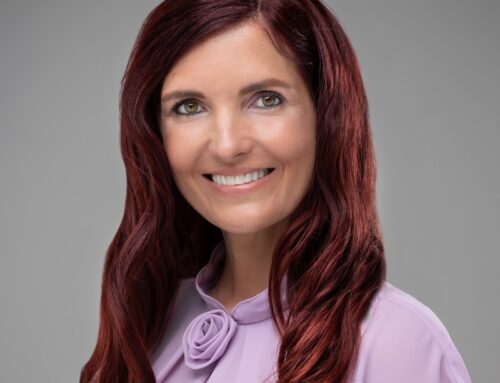Every business across the country has been impacted by the current pandemic. Many have beenforced to change their hours, procedures and even the products and services they sell. Some have closed their doors temporarily; others have done so permanently. And though those hardships don’t compare to the health challenges some are facing, they have lasting effects on households and communities throughout America. Thankfully, though, there are signs that the economy is beginning to rebound. Stores are reopening and customers are buying again. For the auto industry, which was hit particularly hard by the downturn, it’s welcome news.Regardless of whether the market’s a bear or a bull, car dealerships have always looked for ways to reduce costs. At the same time, they’ve always looked for ways to increase sales. And, as with many businesses, marketing is one of the first places dealerships look to accomplish both. It’s a good place to start and that’s especially true right now.One of the biggest marketing decisions dealerships will make relates to the structure of its marketing team. That is, will the dealership handle all of its marketing in-house, will it utilize an outside agency or will it incorporate features of both. Each of the three structures has its benefits and can prove to be a winning formula for your dealership, but each also has its downsides. Determining which model is best for your business is critical to your continued success.
Handling Marketing In-House
When everything is done under your dealership’s own roof, you gain instant access to your marketing team and immense control over day-to-day marketing decisions. Along with access and control, your team will be focused solely on your business. The intimacy of knowledge is unmatched, as the team working for your dealership is 100% devoted to your success. They know the ins and outs of your brand as well as anyone.With that singular focus, though, comes a downside. There is no cross-pollination of ideas or strategies. Your team won’t pull from lessons learned in other markets or from other dealerships to hone your own marketing strategies or messaging. Your dealership will sacrifice experience for what is perceived as convenience. In addition, staffing costs can quickly balloon. And piecemealing it together can get expensive. When you have the right vendor, it can be efficient from both a time and financial standpoint, but finding the right vendor can be time-consuming in itself. This structure can work, to be sure, but it rarely works well.
Outsourcing Everything
If your dealership uses an outside agency to handle its marketing, you get a full team supporting your efforts. In many cases, that team is large. Fortunately, though, the overhead of those employees – from UX specialists and designers to email managers and digital strategists – is borne by the agency itself. Aside from financial benefits, the key differentiator is that those employees have a wealth and depth of experience that cannot be matched by an in-house team, and they problem solve and troubleshoot more effectively because of it. In addition, an outside agency that focuses entirely on the auto industry will likely have relationships with OEMs, a tech platform that leverages your data and media relationships that can help optimize your marketing.It’s worth noting that there are traditionally two types of agencies serving the auto industry. One type is a fulfillment agency, which is traditionally an automated option that functions more like a retail store than a partner. It’s a conveyor belt for marketing so, in many cases, dealerships are getting recycled ideas. A full-service, creative agency, on the other hand, tailors its offerings to your dealership and its particularities. A creative agency asks questions, communicates frequently and offers solutions. One way to know which you have, by the way, is to see if a Creative Director is part of their leadership. Ultimately, the distinction is important, because your dealership will benefit much more with a creative type of agency.An issue GMs and owners don’t have with in-house teams is one some feel they’ll encounter with outside agencies: that their agency is not focused enough on their dealership. Some may believe their marketing agency is spread too thin to effectively manage the day-to-day needs of their dealership. But there is no reason a proper agency relationship cannot function like an extension of your own team. For one, the Internet and smartphones have made access much easier. And, in many cases, agencies devote a person or small team to dealership accounts, which makes communication and responsiveness all the more seamless.
A Hybrid Approach
A hybrid model utilizing aspects of both an in-house marketing team and an outside agency is growing in popularity. With this structure, you have people on the inside you trust, people who know your brand and are on the ground with you. At the same time, you have outside resources and vendors for those services that are cost-prohibitive or more specialized (for example, creative). Those outside sources can also help with larger or more complex issues, because they can pull from experience with other dealerships and markets.There is some risk of redundancy, though, so your internal management needs to actively monitor all aspects of your marketing. The other issue is one that also hampers in-house models: your dealership runs the risk of losing out on resources, particularly tech resources, that are hallmarks of external agencies. In addition, costs can swell when dealerships attempt to replicate the same offerings they may get from an outside agency.
How Do You Decide?
After looking at your internal numbers and reviewing your data, it’s really good to put together a Request for Information (RFI) to get more information about particular companies you may be interested in doing business with. You get to ask the questions important to you; you take control. You can evaluate the resources – from its people to its tech stack – those companies are using. And, if you’re interested beyond that, put out a Request for Proposal (RFP).Regardless of the model your dealership embraces, asking questions and reviewing your current structure can reap huge benefits for your business in the second half of 2020 and beyond. And there’s no time like the present to get started.
To learn more from Jennifer, give her a call at 1-864-385-7534 or email her at Jennifer@dom360.com.





